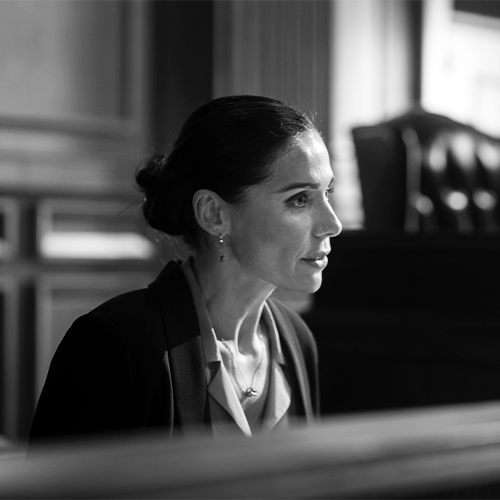Vulnerable and Intimidated Witnesses | Special Measures

Support systems known as 'special measures' have been implemented to aid vulnerable and intimidated witnesses, recognising the stress, fear, and intimidation they often endure throughout the investigation phase of a crime and while appearing in court to give evidence. As a result, the quantity and accuracy of their communication and evidence is adversely impacted.
The issue is of particular concern in cases where a child, who has experienced any type of abuse or mistreatment, is required to give evidence against the person responsible. However, similar challenges frequently emerge with adult victims as well, especially in instances involving allegations of domestic abuse.
It was recognised that, when striving to secure satisfactory convictions under such circumstances, the special needs of vulnerable or at-risk witnesses needed to be addressed, and the current procedures were deemed inadequate.
In response to recognised shortcomings within the court systems and with the aim of assisting vulnerable and intimidated witnesses, other than defendants, in providing the best evidence they can, the Youth, Justice and Criminal Evidence Act 1999 ('the Act') introduced a series of measures, commonly known as 'Special Measures'.
Sukhi Randhawa outlines eligibility for and the nature of the Special Measures introduced by the Act.
Determining Special Measures Eligibility
The Prosecutor is responsible for assessing the need for Special Measures and their specific application depending upon the prevailing circumstances. Among other actions, the Prosecution may hold meetings with victims to determine the suitable measures to be implemented.
The Prosecution will apply to the court requesting that the required Special Measures be implemented and The Code of Practice for Victims of Crime states:
‘the judge or magistrate will decide whether special measures should be granted following a request from the prosecutor.’
Eligibility for Special Measures does not mean that the court must automatically grant them. The court must be satisfied that the proposals are likely to maximise the quality of the witness’s evidence.
The Act provides as follows:
Section 16 – Witnesses eligible for assistance on grounds of age or incapacity.
A witness is eligible by virtue of this section when:
- the nature and alleged circumstances of the offence to which the circumstances relate,
- the age of the witness,
- mental disorder as defined by the Mental Health Act 1983 or
- significant impairment of intelligence and social functioning,
- a physical disability or suffering from a physical disorder.
Section 17 – Witnesses eligible for assistance on grounds of fear or distress about testifying.
A witness is eligible where the quality of evidence is likely to be diminished by reason of fear or distress taking into account:
- under the age of eighteen at the time of the hearing or
- the court considers the quality of the evidence is likely to be diminished by reason of:
- mental disorder as defined by the Mental Health Act 1983 or
- significant impairment of intelligence and social functioning,
- a physical disability or suffering from a physical disorder.
- such of the following as are relevant-
- mental disorder as defined by the Mental Health Act 1983 or
- significant impairment of intelligence and social functioning,
- a physical disability or suffering from a physical disorder.
- behaviour towards the witness on the part of –
- the accused,
- family or associates of the accused, or
- any other person likely to be an accused or witness in the proceedings.
- the court must also consider views expressed by the witness.
Where the complainant in respect of:
- a sexual offence,
- an offence under Sections1 or 2 of the Modern Slavery Act 2015,
- any other offence where domestic abuse under the Domestic Abuse Act 2021 is alleged
is a witness in proceedings relating to that offence, the witness is eligible for assistance in relation to those proceedings.
What are the Special Measures?
The Act sets out the available measures at sections 23 > 30.
Section 23 – Screening witness from the accused.
A screen or other arrangement may be used to prevent the witness seeing or being seen by the accused.
However, the screen must not prevent the witness from being able to see and be seen by the Judge, jury, legal representatives and interpreters.
Section 24 – Evidence by live link.
The witness may give evidence by means of a live link and may be accompanied by a specified person.
Where a direction has been given for evidence to be given in this manner, it cannot be given in any other way without permission of the court.
‘Live link’ means a live television link or other arrangement whereby a witness, while absent from the courtroom, or other place where the proceedings are being held, can see and hear a person there and to be seen and heard by the specified persons.
Section 25 – Evidence given in private
The Court may give a direction excluding persons of any description specified, but not the accused, legal representatives, or an appointed interpreter, where the proceedings relate to a sexual offence, an offence under the Modern Slavery Act 2015 or it appears to the court that there are reasonable grounds for believing that any person other than the accused seeks to intimidate the witness.
Section 26 – Removal of wigs and gowns
The wearing of wigs and gowns may be dispensed with whilst the witness is giving evidence.
Section 27 – Video recorded evidence in chief.
A video recording of an interview of the witness may be admitted as evidence in chief, in whole or part, but not if the court considers that this would not be in the interests of justice.
However, the court may subsequently decide not to admit it where:
- the witness will not be available for cross-examination,
- the parties have not agreed that there is no need for the witness to be available,
- any circumstances in which the recording was made were not in accordance with Criminal Procedure Rules.
Section 28 – Video recorded cross-examination or re-examination.
A special measures direction providing for admittance under section 27 may also provide for any cross-examination and re-examination of the witness to be recorded and for such recording to be admitted.
Section 29 – Examination of witness through intermediary.
Contains provision for an interpreter, or other person approved by the court, to communicate questions to the witness and the replies given in response.
Section 30 – Aids to communication.
The witness may be assisted, in the event of an impairment or disability, with such device as the court considers appropriate to enable questions and replies to be communicated to and from the witness.
How Can We Assist?
The KANGS team possesses extensive experience in defending clients against a wide range of criminal charges, including those of a sexual nature.
We excel in handling defences where the implementation of Special Measures is deemed appropriate, and the detailed consideration required when dealing with vulnerable and/or intimidated witnesses.
If we can be of assistance, the Team at KANGS would be delighted to hear from you, please call or email us using the details below:
Telephone: 0330 370 4333
Email: info@kangssolicitors.co.uk
Top ranked by leading legal directories Chambers UK and the Legal 500.






